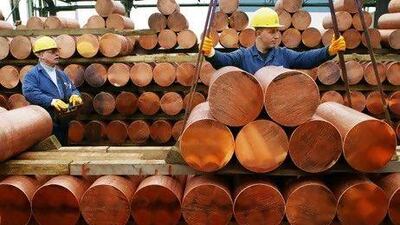Ducab, the cable-making joint venture between Abu Dhabi and Dubai, is reviewing its plans to make cables in Saudi Arabia because of concerns about regulatory roadblocks.
The company, which makes copper cables used in oil operations and power grids, hopes to ride an expected Saudi construction boom spurred by billions of dollars of government housing grants. But concerns about the kingdom's rules for business, among other issues, have kept Ducab's board from approving any proposals to set up factories there.
"The feasibility studies have been rejected by the board due to certain issues," said Ahmed al Shaikh, the chairman of Ducab. "There are certain rules and regulations we have been trying to overcome, and see what can be done about these regulations. Have we taken a firm decision? Not yet."
Citing confidentiality agreements, Mr al Shaikh declined to say what partners or sites the board had considered in Saudi Arabia.
Setting up a factory in the kingdom would be a good strategic move for Ducab, allowing it to avoid the cost of shipping large cables long distances and positioning the company to make inroads into the Saudi oil and gas sector. Ducab's oil, gas and petrochemical-related sales grew by 143 per cent last year, in part due to a US$30 million (Dh110m) contract to supply cables for an oil pipeline running from Abu Dhabi to the Fujairah coast.
Ducab also has a key advantage as a GCC company: it does not have to partner with a Saudi company to operate in the kingdom. That means it can team up with a multinational company with specialised technology or expertise, a scenario at which Andrew Shaw, Ducab's managing director, hinted.
"You'll get a producer from the East and a producer from the West and they'll have different strengths," Mr Shaw said.
The company has also looked at making cables in North Africa and in India, where it obtains much of its copper and sells the finished product.
"We are looking into different acquisitions or greenfields in different spots worldwide," said Mr al Shaikh at a briefing on Ducab's annual financial results. "In the Arab region, some have been put on hold due to the political situation."
Ducab would not wish to enter into any partnerships as a minor, he added. "We are not investors. We are a cable producer. We know our work. So we can do our work when we are a major shareholder rather than a minor shareholder," he said.
The company said the rise in the price of copper, a key material in cables, had not hurt its profitability, since it could pass the increase in costs on to its customers. Yesterday copper was trading at $9,545 a tonne on the London Metal Exchange, more than three times the levels in early 2009.
"Our aim is to grow the business by 15 per cent compared with 2010, despite the economic situation globally and the copper prices," said Mr al Shaikh.
Ducab expects this year to complete a factory to make high-voltage cables, part of a Dh500m joint venture between Ducab and the state utilities Dubai Electricity and Water Authority and Abu Dhabi Water and Electricity Authority.
That factory is expected to begin operating as Abu Dhabi pushes ahead with major infrastructure projects, including a $20 billion nuclear energy programme in the Western Region and a nationwide railway.

